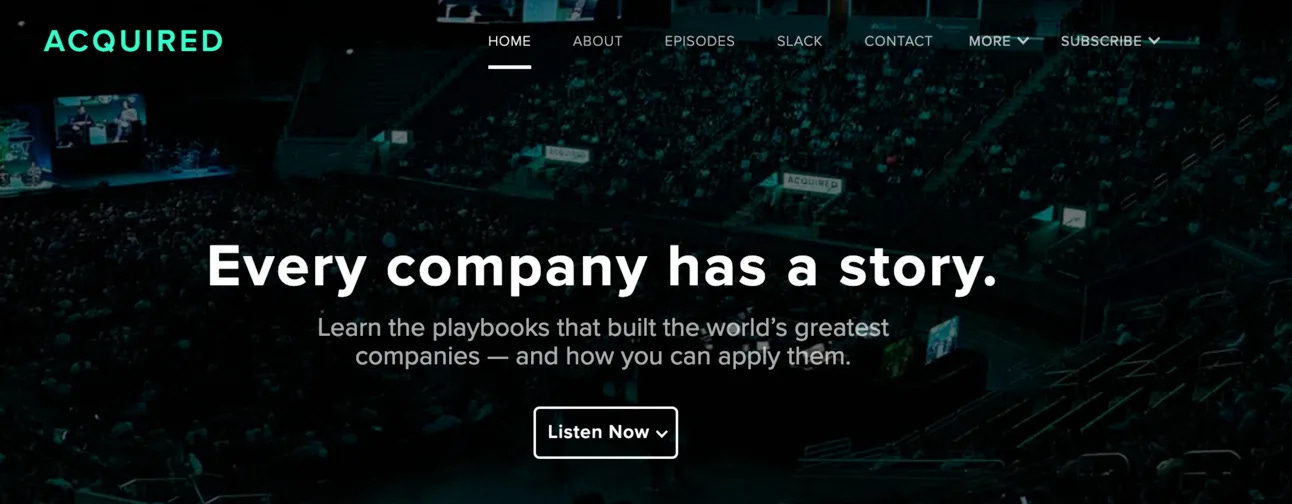Kyle Perez - Foxe Capital
"I think at best, VCs can add somewhere in the ballpark of 5% of company value, but at worst, can destroy 100% of it."
Connect with Kyle
https://www.linkedin.com/in/kyle-perez8/
VC Uncovered's View
As a partner at Foxe Capital, Kyle Perez embodies the nimble, thoughtful investor who can spot tomorrow's transformative companies before they've fully taken shape.
What makes Kyle's perspective particularly valuable is his emphasis on capital efficiency in an era where many founders get caught up in the allure of being a high-flying, over-capitalized venture-backed company. While the industry has normalized the "grow at all costs" mindset, Kyle advocates for a more sustainable approach that gives founders greater control over their destinies. This philosophy speaks directly to the core of our manifesto—that the most effective VCs aren't those with the deepest pockets, but those who move with precision and purpose.
Kyle's approach to founder references is a breath of fresh air. By questioning the traditional reliance on perfect references, he showcases how truly innovative companies often exist at the edges of consensus. This approach empowers him to identify founders who larger, more conventional funds might overlook—precisely the thinking we believe will define the next generation of venture capital.Meet Kyle
Q: You can be anywhere. Eating, drinking, and listening to your favorite thing. What is it?
A: In New York, Los Tacos No.1 (the only place that can hold a candle to California), listening to Acquired.
Key Quotes
"I think at best, VCs can add somewhere in the ballpark of 5% of company value, but at worst, can destroy 100% of it."
"I think an overreliance on referencing can, at times, lead to poor investment decisions."
"The question I often ask myself when evaluating founders is if I were to leave venture, would I want to go work for this person?"
"I am much more comfortable taking ICP expansion risk than taking product roadmap expansion risk."
"As the infrastructure and tooling available to build companies continues to get better, it's no surprise we've seen barriers to entry and technical defensibility decrease."
Original Responses (Lightly Edited for Clarity and Flow)
Background and Personal Journey
Moment Inspiring Venture Capital Career
I was fortunate to have my first real professional work experience be an internship with Pear VC back when I was in college. I remember sitting in on my first couple pitches and feeling a sense of awe that if these founders were right about their hypotheses and executed on their vision, the way their industries operated could fundamentally change. That feeling of getting a front row seat to what the future looks like was something I couldn't shake.
Unconventional Belief
An overreliance on referencing can, at times, lead to poor investment decisions. Of course, both commercial and personal references are critical components of any fund's diligence process and rightfully so. But at times, great opportunities don't always come back with perfect A+ references across the board. Opportunities for true disruption are often quite challenging to pull off and true subject matter experts know every reason why they could fail, leading to a degree of skepticism sometimes. Founders also aren't always necessarily the best employees, so personal references might not always be completely stellar. Gathering this feedback is important, but sometimes true outlier performance requires a unique person doing something others thought couldn't be done.
Philosophy and Insights
Investment Philosophy
At the end of the day, as a Pre-Seed and Seed stage investor, so much of our underwriting comes down to people. When evaluating founders, I often ask myself if I were to leave venture, would I want to go work for this person? With that frame of reference, I look for people who have unique insights into a particular market, are building products that are truly 10x better than the status quo, and have a competitive advantage when addressing the most challenging elements of building their particular business.
Values When Working with Founders
I look to back founders who can and want to build highly capital-efficient businesses. Until recently, founders were left with a fairly binary choice - either bootstrap and build a lifestyle business, or get on the venture hamster wheel and continue to raise cash in perpetuity. This meant that success as a venture-backed business was really binary for the most part in that either you consistently showed the market enough progress to maintain fundability on your way toward a $1b+ outcome, or your runway caught up to you, either killing the business or forcing a suboptimal sale. Given the improvements in operational leverage per employee, founders can now realize that, largely due to AI, founders can do far more with less, enabling them to raise less capital and maintain control of their destiny.
With that in mind, there's still five times more capital available for founders today than in 2013. Having the discipline to raise less is not easy—money is money, after all. And especially as a venture-backed company, there's an undeniable appeal in saying you raised an impressive round.
Given the pressures that huge preference stacks and high valuations put on founders (cue this scene from Silicon Valley), there is a far more sustainable way to build a business that can lead to better outcomes. This doesn’t mean founders should be less ambitious by any means, but rather that founders may not need to take on the risk of hyperscaling prematurely before enough of the business has been derisked. It’s a priority for me to find founders who care deeply about building a successful business first and foremost ahead of any of the allure that being a high-flying venture-backed company brings.
Approach to Risk
I am much more comfortable taking ICP expansion risk than taking product roadmap expansion risk. Focus is obviously key for any early-stage startup, so I don't mind companies being really specific on who exactly they want to prioritize selling to. If the product by nature is applicable to other customer sets, I can get comfortable with underwriting great founders figuring out how to tweak their sales strategy to target other customer bases. Product roadmap expansion is trickier for me though. If I feel like I need to underwrite a company launching a number of additional products in order to grow into a business that can deliver a sizable outcome, I often struggle. Of course, every huge company launches additional products over time, but a lot of the time these incremental product launches come after the initial version has carried them a good ways. Underwriting an early stage startup is already a high risk endeavor - backing them to find product market fit repeatedly across multiple products when very limited information is available is tough for me.
Trends and Future Vision
Misconception About VCs
I think VCs often get more public credit than we deserve when it comes to the success of startups. I think at best, VCs can add somewhere in the ballpark of 5% of company value, but at worst, can destroy 100% of it. Realistically, founders are the true visionaries who can see the future and upend how industries operate. You'd be hard pressed to find too many examples of startups that would not have been successful otherwise but were because of their cap table.
Improving the VC Ecosystem
I think incentive alignment remains a problem for the industry. The biggest immediate goal for most investors (essentially all non-GPs) is to get promoted. These promotion cycles happen much faster than it takes actual outcomes to materialize. Promotions, accordingly, are often done based on markups, leading to investors prioritizing deals that have a high probability of being marked up quickly and pushing founders to raise large rounds at inflated prices as soon as possible. Additionally, management fees based on committed capital incentivize fund managers to raise progressively larger funds. Locking in guaranteed revenue over a ten-year time horizon might be one of the best business models to ever be invented, making it highly enticing to raise as large a fund as LPs will accept, regardless of whether it suits the given market opportunity.
Challenges for Early-Stage Founders
As the infrastructure and tooling available to build companies continues to improve, it's no surprise we've seen barriers to entry and technical defensibility decrease. While this allows founders to get products in market and generate real traction faster than we've ever seen, this can often lead to prioritizing more immediate short-term success that isn't necessarily scalable due to a lack of defensibility. VCs can and should maintain a long-term mindset to help founders continue to prioritize making decisions that will build defensibility and ensure the business's enduring success over an extended timeframe.









